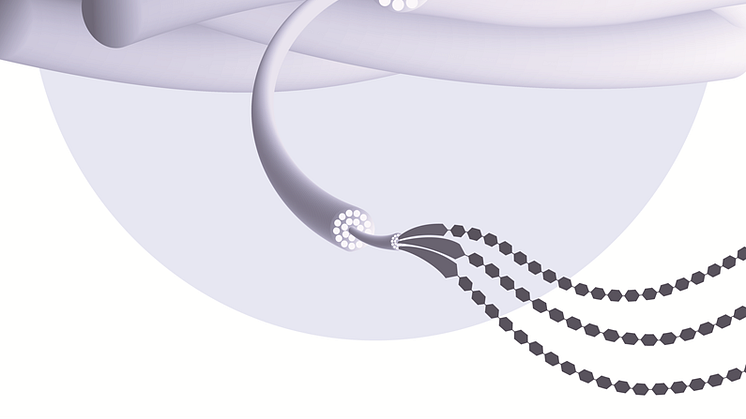
Press release -
Nanocellulose is increasingly safe for our seas, according to findings from a study conducted on mussels
International research by the Politecnico di Milano in collaboration with the University of Siena, published and featured on the cover of the prestigious journal Environmental Science Nano.
Milan, 16 April 2024– Cellulose nanofibres represent a promising resource for multiple industrial sectors, but what is their impact on the marine environment? A study published in the prestigious journal Environmental Science Nano of the Royal Society of Chemistry recently addressed this issue in a study on marine organisms considered sentinels of sea health: mussels.
The work was conducted jointly by the research groups OSCMLab from the 'G. Natta' Department of Chemistry, Materials and Chemical Engineering at the Politecnico di Milano (Dr Laura Riva and Prof. Carlo Punta), and EcoBiomLab from the Department of Physical, Earth and Environmental Sciences at the University of Siena (Dr Tatiana Rusconi and Prof. Ilaria Corsi), in collaboration with Prof. Montserrat Solè from the Institute of Marine Sciences in Barcelona.
The study analysed two types of cellulose nanofibres – oxidised and non-oxidised – to assess their ecotoxicological impact on Mediterranean mussels and to determine how safe they are for the marine environment.
The results showed that cellulose nanofibres can affect the immune response of mussels and alter the functionality of their gills through physical interactions (surface adhesion). However, the study did not observe any toxicity such as to endanger the species' survival, nor conditions of stress capable of altering its response to environmental changes.
Laboratory experiments also ruled out possible changes in the pH and salinity of sea water following the release of nanofibres, mimicking realistic exposure scenarios such as their transport with sewage effluents in coastal marine areas.
“This study raises fundamental questions about the interaction between cellulose nanofibres and marine biodiversity,” says Prof. Ilaria Corsi from the Department of Physical, Earth and Environmental Sciences at the University of Siena, “stimulating the need for further research to perform an ecological risk assessment that takes into account chronic exposure times and multiple stress conditions, such as those now affecting Mediterranean marine and coastal areas.”
“At the same time,” adds Prof. Carlo Punta from the 'G. Natta' Department of Chemistry, Materials and Chemical Engineering at the Politecnico di Milano, “it opens the door to a responsible use of this nanomaterial, of growing interest in sustainable applications in the cosmetics, paper, packaging and paint sectors, as well as in construction and the automotive industry.”
Link to the work published in the journal Environmental Science Nano: https://pubs.rsc.org/en/content/articlelanding/2024/en/d3en00135k
Topics
Politecnico di Milano is a scientific-technological university which trains engineers, architects and industrial designers.
The University has always focused on the quality and innovation of its teaching and research, developing a fruitful relationship with business and productive world by means of experimental research and technological transfer.
Research has always been linked to didactics and it is a priority commitment which has allowed Politecnico Milano to achieve high quality results at an international level as to join the university to the business world. Research constitutes a parallel path to that formed by cooperation and alliances with the industrial system.
Knowing the world in which you are going to work is a vital requirement for training students. By referring back to the needs of the industrial world and public administration, research is facilitated in following new paths and dealing with the need for constant and rapid innovation. The alliance with the industrial world, in many cases favored by Fondazione Politecnico and by consortiums to which Politecnico belong, allows the university to follow the vocation of the territories in which it operates and to be a stimulus for their development.
The challenge which is being met today projects this tradition which is strongly rooted in the territory beyond the borders of the country, in a relationship which is developing first of all at the European level with the objective of contributing to the creation of a single professional training market. Politecnico takes part in several research, sites and training projects collaborating with the most qualified European universities. Politecnico's contribution is increasingly being extended to other countries: from North America to Southeast Asia to Eastern Europe. Today the drive to internationalization sees Politecnico Milano taking part into the European and world network of leading technical universities and it offers several courses beside many which are entirely taught in English.
